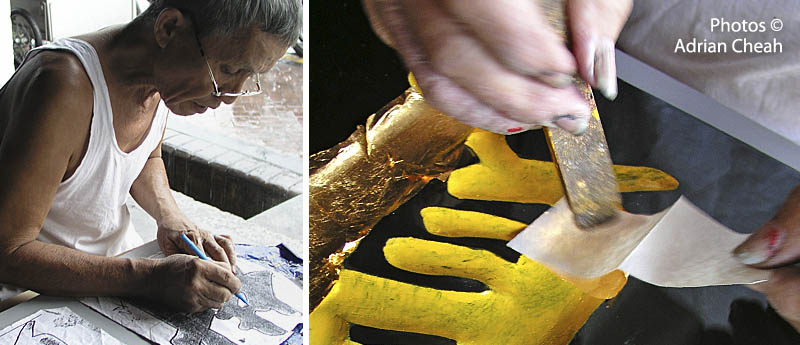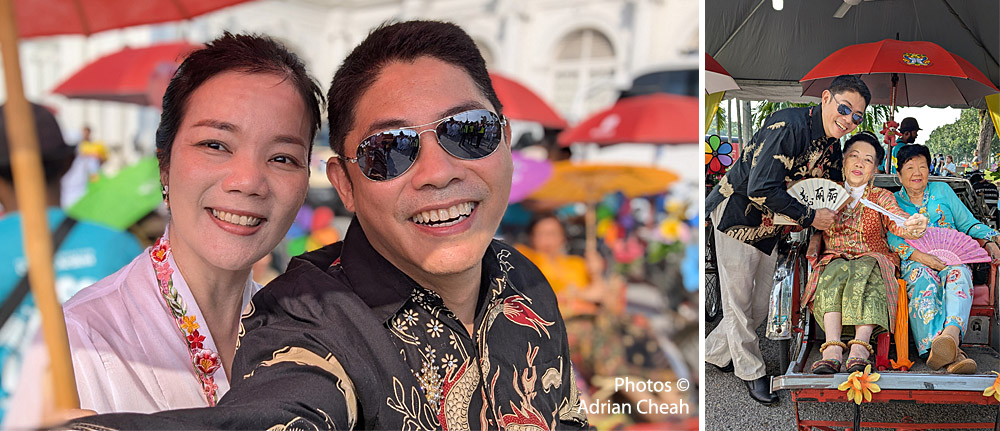Dinner with Emily: A Chinese Peranakan Musical of Love, Loss and Legacy
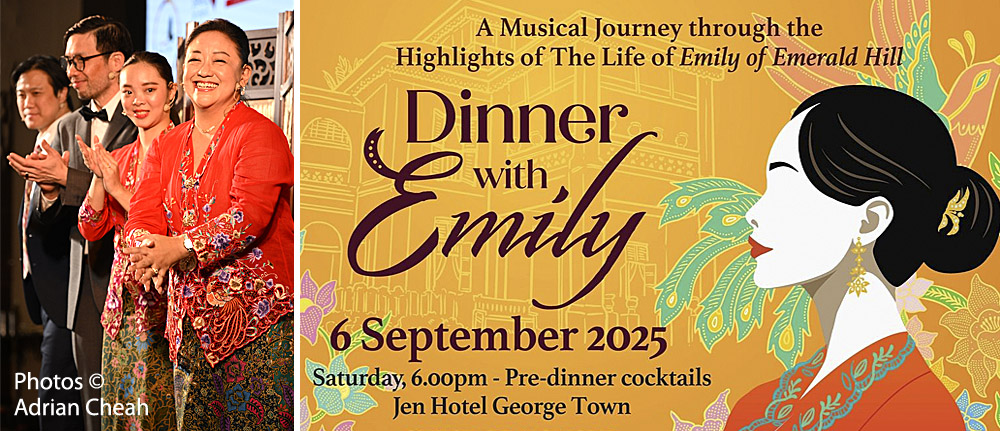
On Saturday, 6 September 2025, I had the privilege of attending "Dinner with Emily" at JEN Penang Georgetown by Shangri-La. This was the first time the musical adaptation of Emily of Emerald Hill was performed in Penang, bringing together food, theatre and music in a joyous celebration of Chinese Peranakan culture.
Continue Reading
Penang Dragon Boat Festival – race of the ancients

About 100 years ago, large clans of sea-faring migrants from China settled along the foreshores of Penang island, building pier houses on the fringes of George Town.
Many of these humble coastal plank settlements, like the old Bang Liaw jetty in Weld Quay, still exist today, housing scores of fisher-folk families just as they did many decades before.
During the early period, every year on the fifth day of the fifth moon of the lunar calendar, the settlers would push out to sea lengthy specially built boats for a passionate day of racing. It was one of the great traditions they had proudly brought along from China.
Continue Reading
Remembering loved ones on All Souls' Day

All Souls' Day is a solemn way to remember those who have passed, to keep their memory alive in our hearts and to offer prayers for their souls. This day gently calls us to extend our compassion beyond the familiar, not only for those we have loved deeply but also for the "neglected souls" – those who may have been forgotten over time. Such prayers are seen as acts of charity, offerings made in the spirit of hope, that all souls may find peace on their journey to heaven.
Continue Reading
My understanding of All Saints' Day

Images of St. Joseph from the Roman Catholic Penang Diocesan Museum, Farquhar Street, Penang.
Can you name five saints, even if you are not Catholic? Perhaps the first name that comes to mind is St. Anne, honoured in Christian tradition as the mother of Mary and grandmother of Jesus. Her legacy endures in the Minor Basilica of St. Anne in Bukit Mertajam. Beside her stands her daughter Mary, the mother of Jesus, two figures whose stories continue to inspire and move people across generations.
Continue Reading
The Grand Celebration of the Nine Emperor Gods in Penang
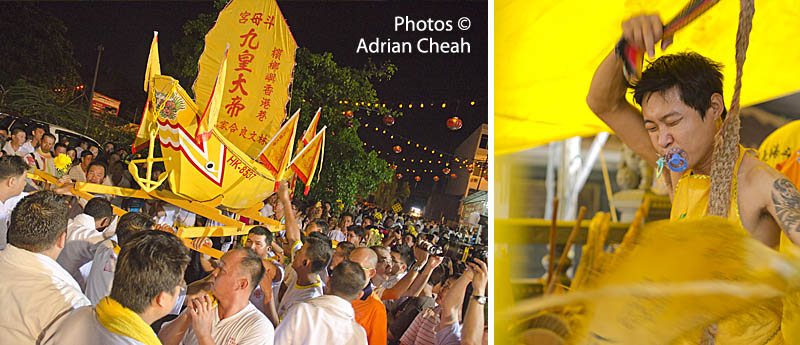
How far would you go to uphold your faith? Would you, with unwavering conviction, embrace a strict vegetarian diet for nine days straight? Could you walk barefoot across burning embers or pierce your cheeks with a long steel rod, enduring pain as an offering of devotion? Or would you rather remain an armchair devotee, watching from afar, content in the safety of your comfort zone?
Continue Reading
Deepavali – Celebrating the Light

Squatting at a corner of King Street amid the human bustle of Penang's Little India, Manickam P. sorts through a giant pile of fresh green banana leaves.
Clad in baggy khaki shorts and a sweat-soaked singlet, he seems to take no notice of either the automobiles that incessantly purr past or the hundreds of human apparitions that mill by him. The elderly odd-job worker certainly has his work cut out for him nowadays.
Continue Reading
Of lanterns and mooncakes
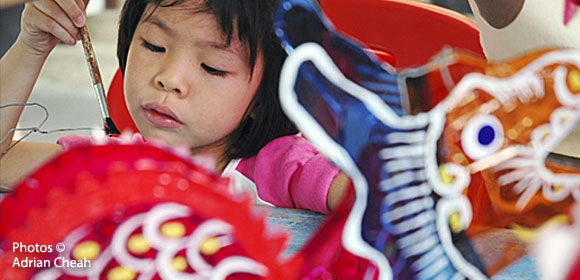
"The Chinese people have never demanded a clear separation of the worlds of myth and reality – indeed, they are so closely bound up that it is hard to say where one begins and the other ends." – An Introduction to Oriental Mythology, Clio Whittaker et al
"The moon, along with fine wine and beautiful women, is a favourite topic for the Chinese poets." – Chinese proverb
Continue Reading
Hungry Ghosts roam the Streets of George Town
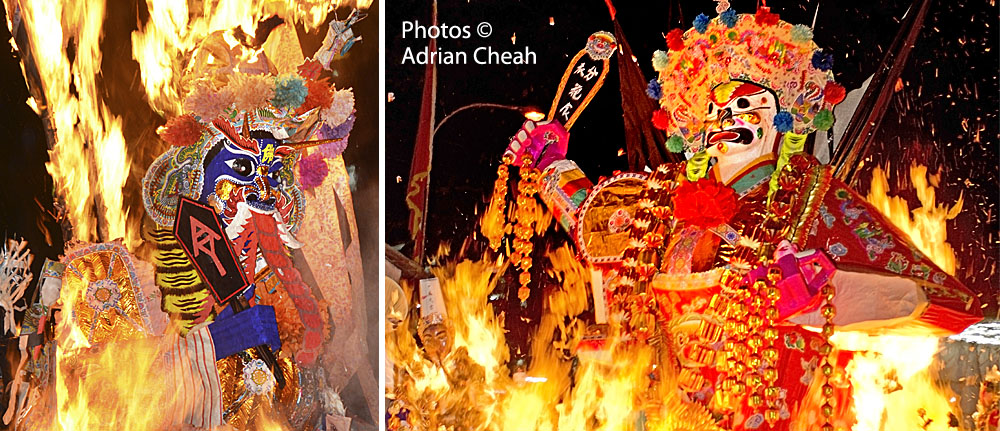
Every year, the streets of George Town in Penang come alive, not just with the living but with the hungry ghosts of the underworld. This is no ordinary celebration. The Hungry Ghost Festival, or Phor Thor as it is locally known, is a month-long festivities observed by Chinese communities not only in Penang but also throughout Malaysia, Singapore and Phuket.
Continue Reading
Merdeka – the National Day of Malaysia

In 1956, the then Prime Minister of Malaysia Tunku Abdul Rahman Putra Al-Haj led a delegation to London to hold talks with the British Government concerning independence for Malaya.
The Malayan delegation, comprising of four representatives of the Malay Rulers and four Alliance representatives, convinced the British Government to set a date for independence: 31 August 1957.
Continue Reading
Tides of candlelight adoration at St Anne's Feast
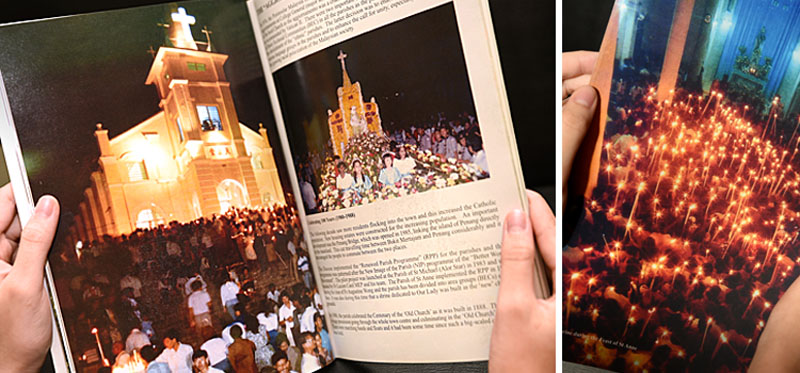
One of the largest and most extraordinary religious mass gatherings in Southeast Asia is the St Anne Novena and Feast in the town of Bukit Mertajam in Penang.
Continue Reading




